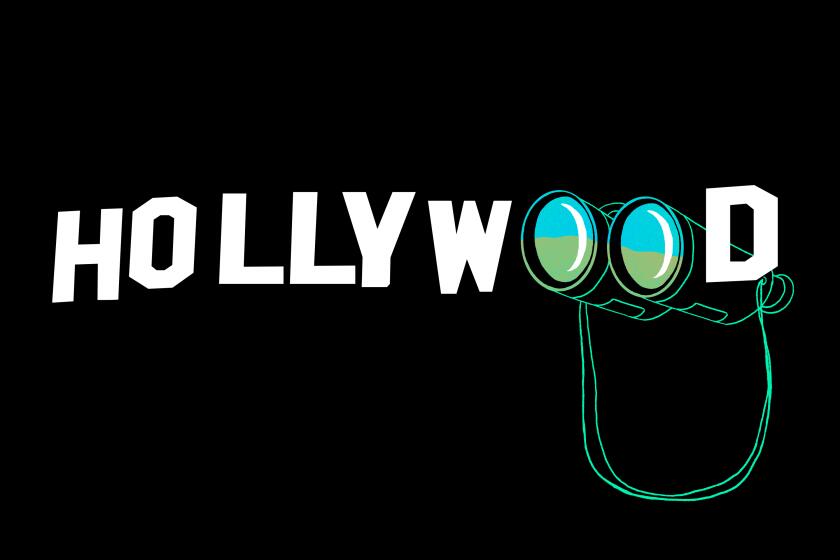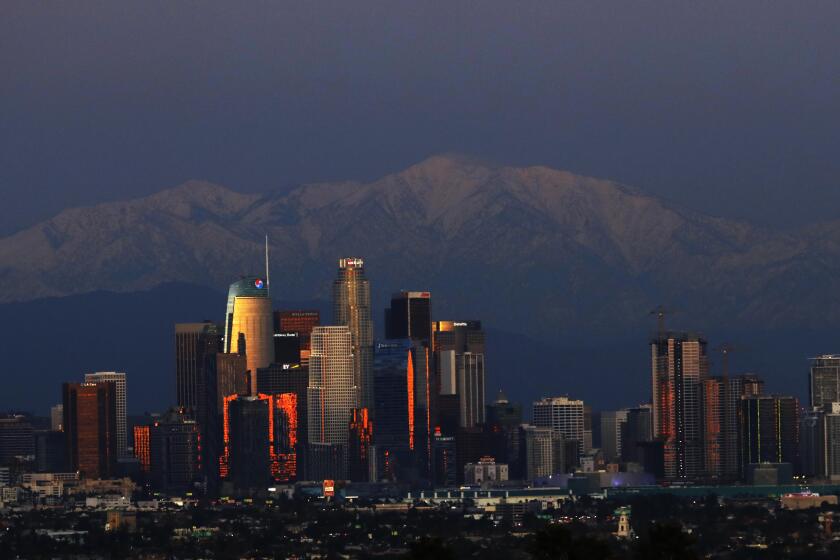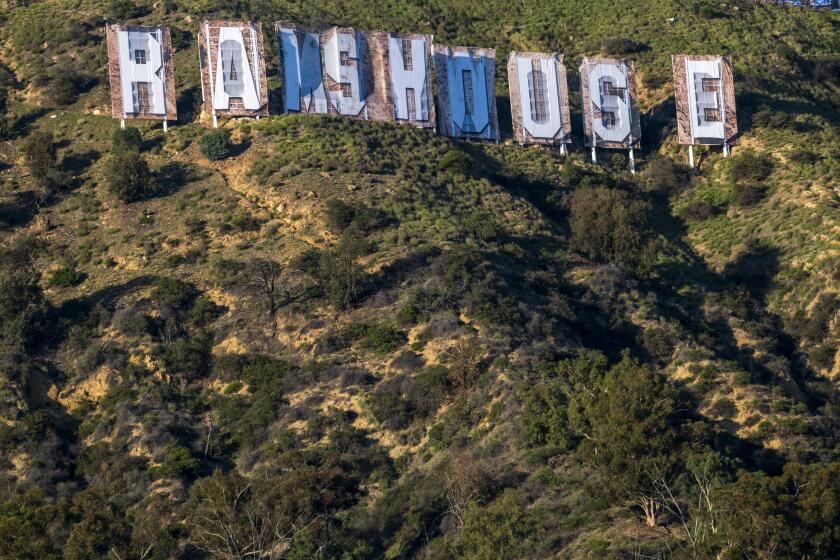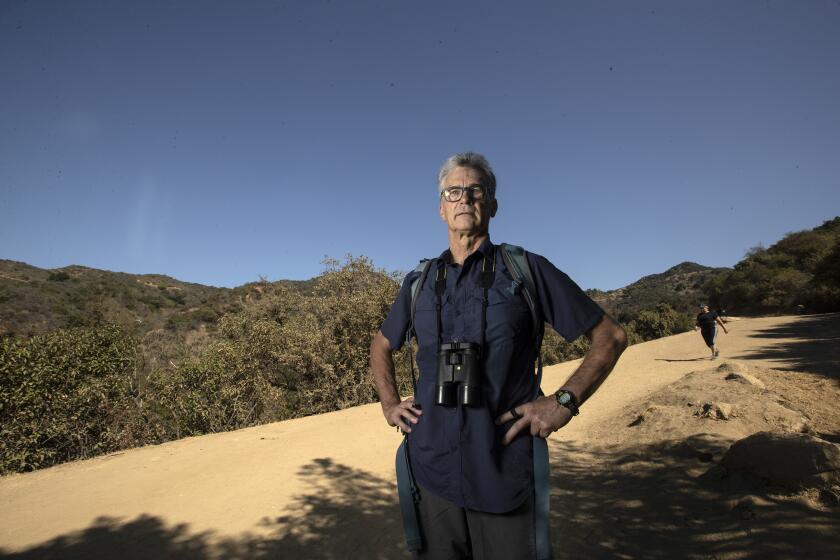Why doesn’t the Hollywood sign light up at night? We have answers
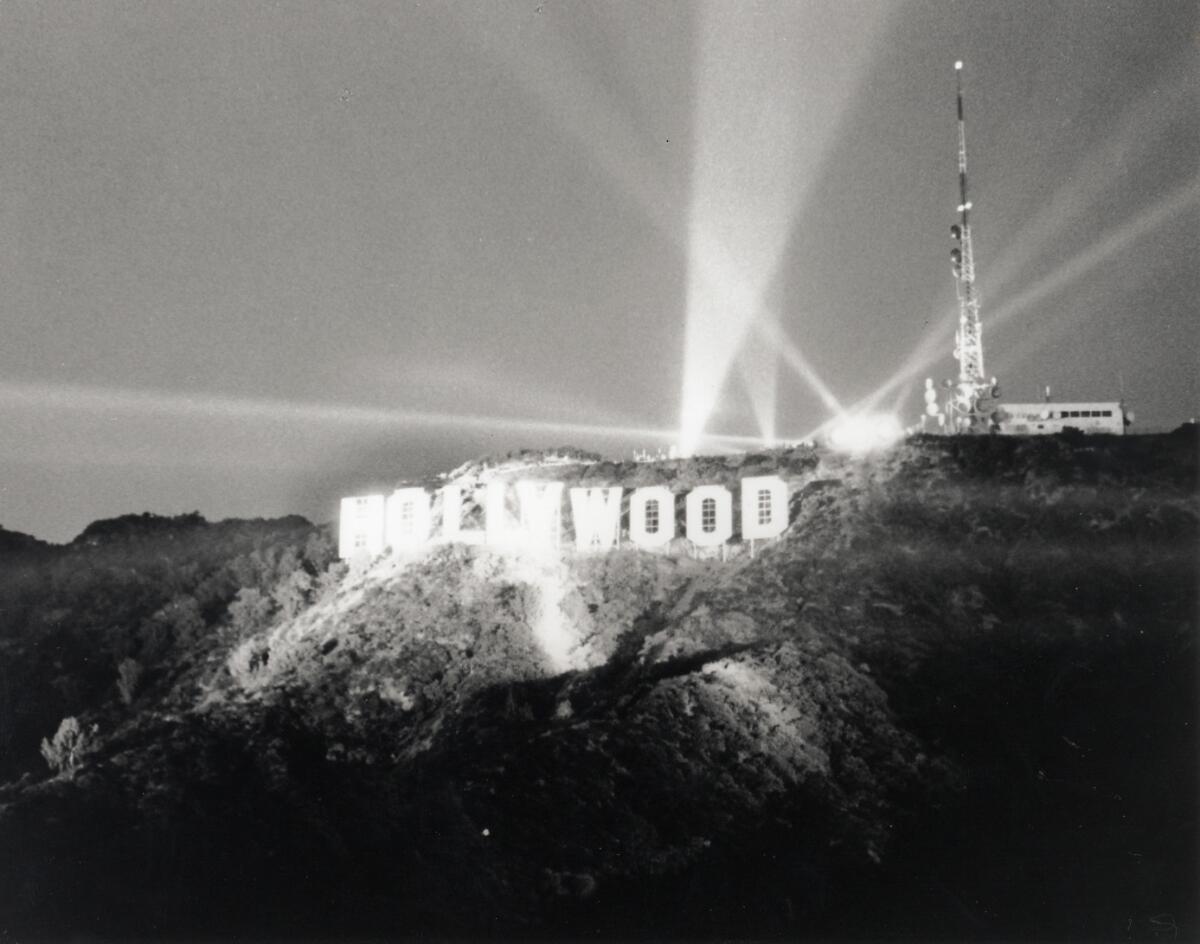
- Share via
In summer 2021, we began asking readers to send us their pressing questions about Los Angeles and California.
Every few weeks, we put the questions to a vote, asking readers to decide which question we’ll answer in story form.
One of our latest winners was submitted by Jeff Napshin. His question: “Why don’t we light the world famous Hollywood sign at night?”
This question instantly transported me back to one of my first nights in L.A. after moving west in 2015.
A few friends and I planned to hike around Griffith Park after dusk, hoping to catch a glimpse of the illuminated Hollywood sign. I thought it would be a magical, if cliché, way to commemorate my first evening as a newly minted L.A. resident.
Spoiler alert: There was no Hollywood sign in sight.
Of course, I should’ve done some research about the sign before driving all the way to Griffith Park. But I’m not the only newcomer who has made this mistake.
Napshin, the president and chief executive of Star Track Tours in Hollywood, says tourists who visit L.A. are often surprised to learn the sign is not lighted at night.
“They’re always disappointed,” he said. “They always ask me ‘Why can’t we see the sign? Why isn’t it lit up?’”
You don’t need to crowd the Griffith Observatory to get postcard-worthy views of the iconic landmark.
Before digging into those questions — why do people expect the sign to be illuminated in the first place?
Napshin points to erroneous depictions of the Hollywood sign in pop culture. For example, Jimmy Kimmel’s backdrop at one point included the stylized Hollywood sign illuminated behind the city skyline. The sign is also depicted lighted in the 2012 film “Rock of Ages”; the crew constructed a fake Hollywood sign on Mt. Trashmore in Florida while filming.
“You see that all the time — pictures of the sign lit up,” he said. “It’s a lie.”
Whatever’s puzzling you about life in L.A. and California, we want to hear about it.
An illuminating history
Though the sign is not currently illuminated at night, that hasn’t always been the case.
A sign reading “Hollywoodland” in flashing bulbs was first illuminated on Dec. 8, 1923, said Jeff Zarrinnam, chair of the Hollywood Sign Trust, a nonprofit in charge of repairing, maintaining and refurbishing the sign. The sign flashed “Holly,” then “wood,” then “land” in sequence — and then “Hollywoodland” as one word.
Its purpose: advertising the upscale Hollywoodland housing development (which is why it said “Hollywoodland” instead of “Hollywood” back then). You can easily find the posh Hollywoodland community on Google Maps today, tucked between the Hollywood Reservoir and Griffith Park.
Change came in 1933, according to Zarrinnam, who said, “It was getting costly to keep maintaining the sign’s light bulbs, and the Sherman Company, which owned the sign at the time, decided to turn them off.”
Years passed, and in 1944, the Sherman Company donated roughly 400 acres of land — including the area with the sign — to the city of Los Angeles, which annexed the land into Griffith Park.
Meanwhile, the sign was falling into disrepair. “The Hollywood Chamber of Commerce stepped in in 1949 and agreed to fix the sign,” Zarrinnam said.
The reviews are in for the new Hollywood sign, now allegedly reading RAMS HOUSE in commemoration of the Rams’ Super Bowl victory, and they are scathing.
Another change? The word “land” was removed from the sign.
“Since 1949, the sign has said ‘Hollywood’ to celebrate and promote the motion picture industry, as well as Hollywood itself,” he said.
Yet time continued to take a physical toll on the sign.
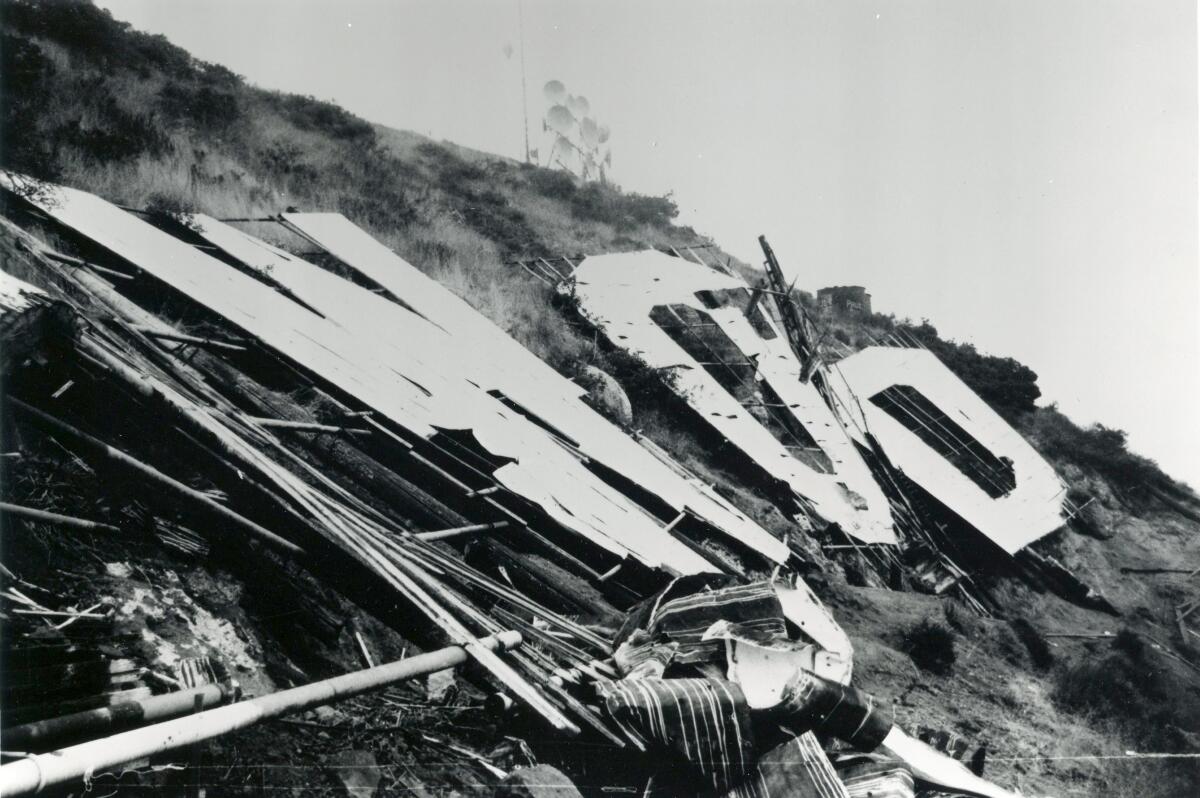
“The sign fell into such disrepair that by 1978 the Hollywood Chamber of Commerce stepped in again … [and] raised $250,000 to completely rebuild the sign. During that time, a new lighting infrastructure was not installed,” Zarrinnam said. ”That’s how it has remained ever since.”
Will the sign be lighted in the future?
Over the years, it has been illuminated on occasion. “We get lighting requests all the time,” Zarrinnam said. However, “we just don’t have the infrastructure in place to light it.”
“It’s also a controversial matter,” he said. For example, how would the sign be illuminated?
“There’s many different ways of doing it,” Zarrinnam said. “One of them is from a projection system from down below … near the Mulholland Highway.” However, “you have advocates who want to light it in the historical sense,” he said, with bulbs attached to the sign.
How often would the sign be illuminated? “Do you light it once a year, five times a year, do you light it every night?” he asked.
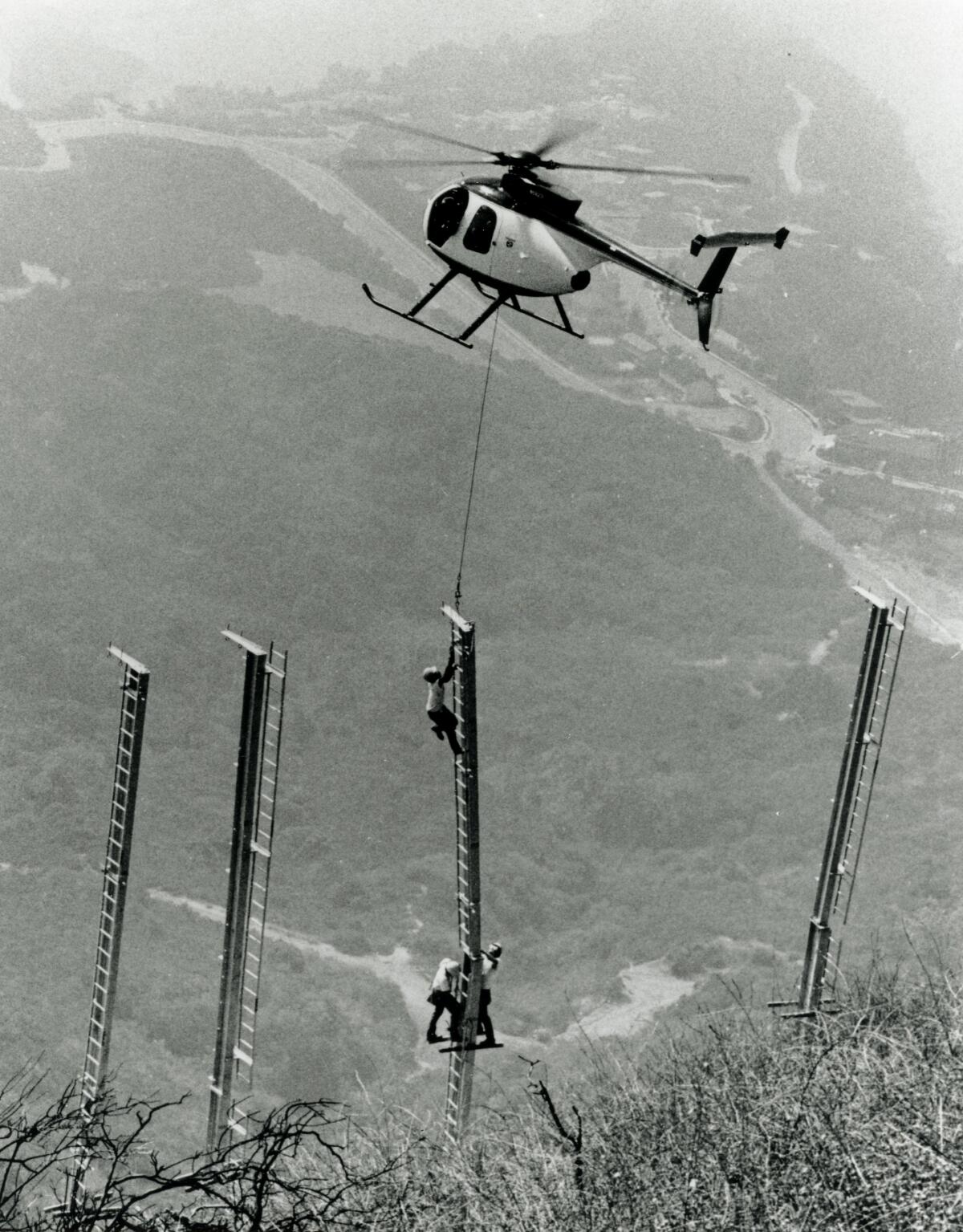
And then come logistical questions: “How do we bring in power? Do we bring in power from the city? Is there enough power available to do it? Do we have to bring in our own power via solar? Do we use batteries?” Zarrinnam asked. “Those are the [questions] that we’re studying right now, so that it is documented for the future,” he said.
The trust hopes the studies will be completed in the next year or so.
Also under consideration by the trust: Whether or not an illuminated sign would harm nearby wildlife or neighborhoods.
Some Angelenos are staunchly against the possibility of lighting the sign due to these concerns.
“We’d be solidly opposed to further illumination,” Gerry Hans, president of Friends of Griffith Park, said via email.
“Birds are attracted to light,” which can result in fatal collisions with lighted structures, he said in a later call.
A proposal to build a 2.5-mile gondola transport to Griffith Park is generating heated opposition from area residents and environmentalists
The Hollywoodland Homeowners Assn. also opposes illuminating the sign.
The association “has consistently taken the position of non-promotion and no lighting of the sign,” due to safety and environmental concerns, said Christine O’Brien, president of the association, via email.
A 1987 piece in the L.A. Times, penned by a resident named Carole Zahn, details some concerns surrounding the sign’s lighting.
“I’m one of the ‘local residents’ who strongly opposes any further lighting of the Hollywood sign. This is what we endured during the 1984 Olympic Games, when the sign was lit each night from 9 p.m. to 1 a.m.,” Zahn begins the piece. “Each evening at dusk a group of cars would assemble at the bottom of our driveway, blocking it completely. ... Cigarettes were lit and tossed, still burning, into the bone-dry canyon despite the ‘Extreme Fire Hazard’ signs.”
Traffic and congestion can be a “big issue” in residential areas around the sign, said Officer Brian White with the Hollywood Community Police Station. “The biggest concern is ... being able to respond if there’s an emergency.”
“The Hollywood sign will be lit again over my dead body,” Zahn concluded in her opinion piece, though it’s worth noting the sign was lighted 13 years later in celebration of the new millennium.
However, not all residents are firmly against lighting the sign a few times a year.
“I did not mind when they lit it for Y2K,” said Augusta Weaver-Johnson, who grew up in neighboring Beachwood Canyon and continues to call the area home.
“I’d be OK with lighting it up for events for a few hours a couple of times a year,” she continued. “I would also want an environmental impact report done before that happened.”
In addition to her worries about wildlife, “I have safety concerns about traffic issues,” Weaver-Johnson said. “At the same time, I also feel that [the sign] is something to be shared with the world.”
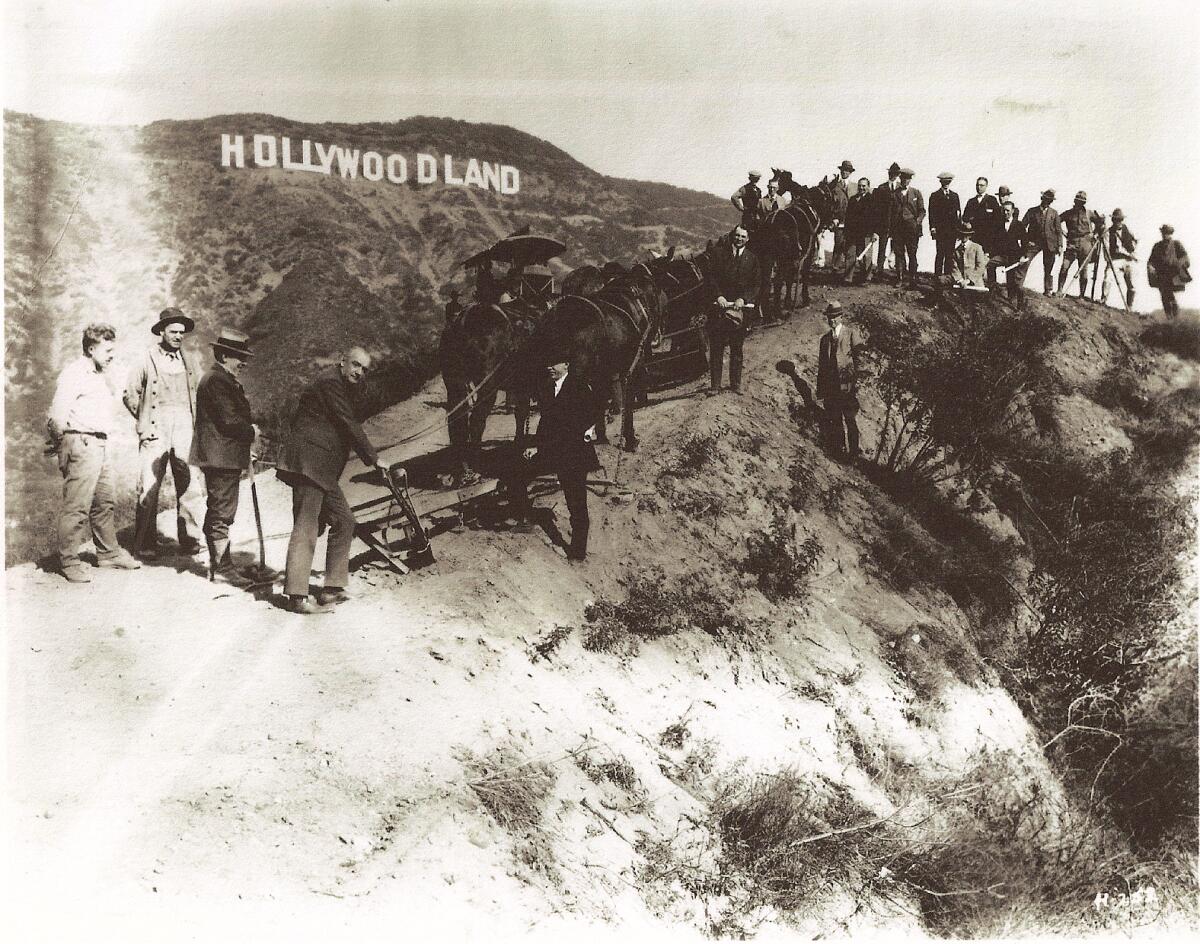
So what are the chances the Hollywood sign will shine through L.A.’s night sky again?
Ultimately, the decision to light the Hollywood sign would not come from the trust alone, Zarrinnam said. Rather, it “would be a collaborative effort in partnership with the trust, the city, which includes elected officials, the public at large and the Hollywood Chamber of Commerce.”
“The Hollywood Sign Trust wouldn’t want to unilaterally light the sign, but it is capable of lighting the sign,” he said. “If there is a request from the city and its people, the trust would make it happen.”
More to Read
Sign up for Essential California
The most important California stories and recommendations in your inbox every morning.
You may occasionally receive promotional content from the Los Angeles Times.
